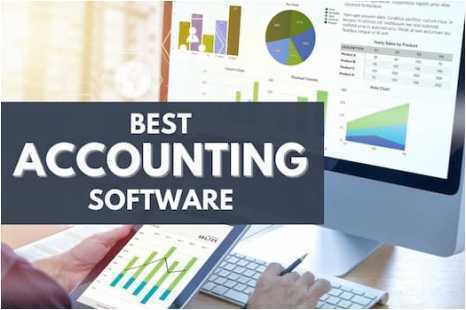Introduction Running a successful small business often involves dealing with daunting accounting requirements. In order to accurately track finances and simplify tax reporting, you need an easy-to-use accounting software solution. The right accounting software can make all the difference in the success of your business. This comprehensive guide will help you explore the features of the leading Best Accounting Software For Small Business solutions and determine which one is the best for you.
Benefits of Implementing Accounting Software for Your Small Business
Improved financial visibility:
One of the most important advantages of using accounting software is improved visibility over your finances. With accurate, up-to-date records, you will be able to make smarter business decisions and better manage cash flow.
Efficiency and ease of use:
Accounting software significantly reduces the human labor and time required for mundane tasks such as tracking expenses, producing financial statements, and completing tax returns. It is also extremely easy to use, and can be integrated with other popular business software to further streamline operations.
Reduced errors and fraud:
Accounting software also helps to improve accuracy and reduce the risk of errors, which can occur when dealing with manual data entry. Furthermore, it can be used to detect signs of fraud and other undesired activities.
Automated features:
A good accounting software should include features such as automated invoicing and bill payment, order processing, and tax filing. These automated features decrease the workload and free up time for more important tasks.
Exploring the Features of the Leading Accounting Software Solutions
Xero:
Xero is a cloud-based, award-winning accounting software solution that is suitable for small businesses, sole traders, and freelancers. It is incredibly easy-to-use and offers features such as automated bank feeds, real-time tracking, automated invoicing and quotes, and mobile access.
QuickBooks:
QuickBooks is another popular cloud-based accounting software solution that is designed to meet the needs of small businesses. It offers features such as accounts receivable, accounts payable, budgeting, and payroll, along with the ability to generate invoices, track finances, and generate reports.
FreshBooks:
FreshBooks is perfect for service-based businesses that need to track time, manage projects and invoices, and accept payments. It also includes features such as an interactive dashboard, integrated tax tools, and automatic reminders that make it easy to stay organized and focused on your business goals.
Zoho Books:
Zoho Books is another comprehensive cloud-based accounting software solution that is suitable for small businesses. It features features such as cloud banking, accounts receivable and payable modules, tax management capabilities, and time tracking.
Determining the Right Accounting Software for Your Small Business
- Estimate your needs: Before selecting an accounting software solution, it is important to accurately estimate your needs. Consider factors such as the size of your business, complexity of your operations, and budget when making your decision.
- Compare features: Once you have narrowed down your options, compare the features of the leading options to determine the best one for you. Consider factors such as ease of use, features offered, customer service and support, and price to make an informed decision.
- Read reviews: Reading reviews from users and industry experts can give you valuable insight into the advantages and disadvantages of each option. This can help you to make the final decision regarding which software to choose.
- Try the demo: Most accounting software solutions come with a free trial period or a money-back guarantee. This allows you to try the software before committing to a purchase.
Unlocking the Power of Accounting Software for Maximum Business Efficiency
Train your staff:
Once you have chosen an accounting software solution, it is important to make sure that everyone in the organization is properly trained in its use before implementation.
Set goals:
Setting measurable goals is essential for any successful implementation of accounting software. Consider factors such as desired level of accuracy, speed of billing and invoicing, and cost reduction when setting the goals.
Monitor progress:
Once the software is implemented, it is important to regularly monitor the progress to make sure that goals are being achieved. Adjustments may need to be made if goals are not being met to ensure that the software is being used to its fullest potential.
Continuous improvement:
Once the software has been established, it is important to continuously review and adjust settings and processes to ensure that maximum efficiency is being achieved.
Conclusion Accounting software is the key to unlocking the potential of your small business. From improved financial visibility to automated features, accounting software can make all the difference in the success of your business.
This comprehensive guide has explored the features of the Best Accounting Software For Small Business solutions and how to choose the one that’s right for you. With the right software and a bit of practice, your business will reach new heights of efficiency and success.
